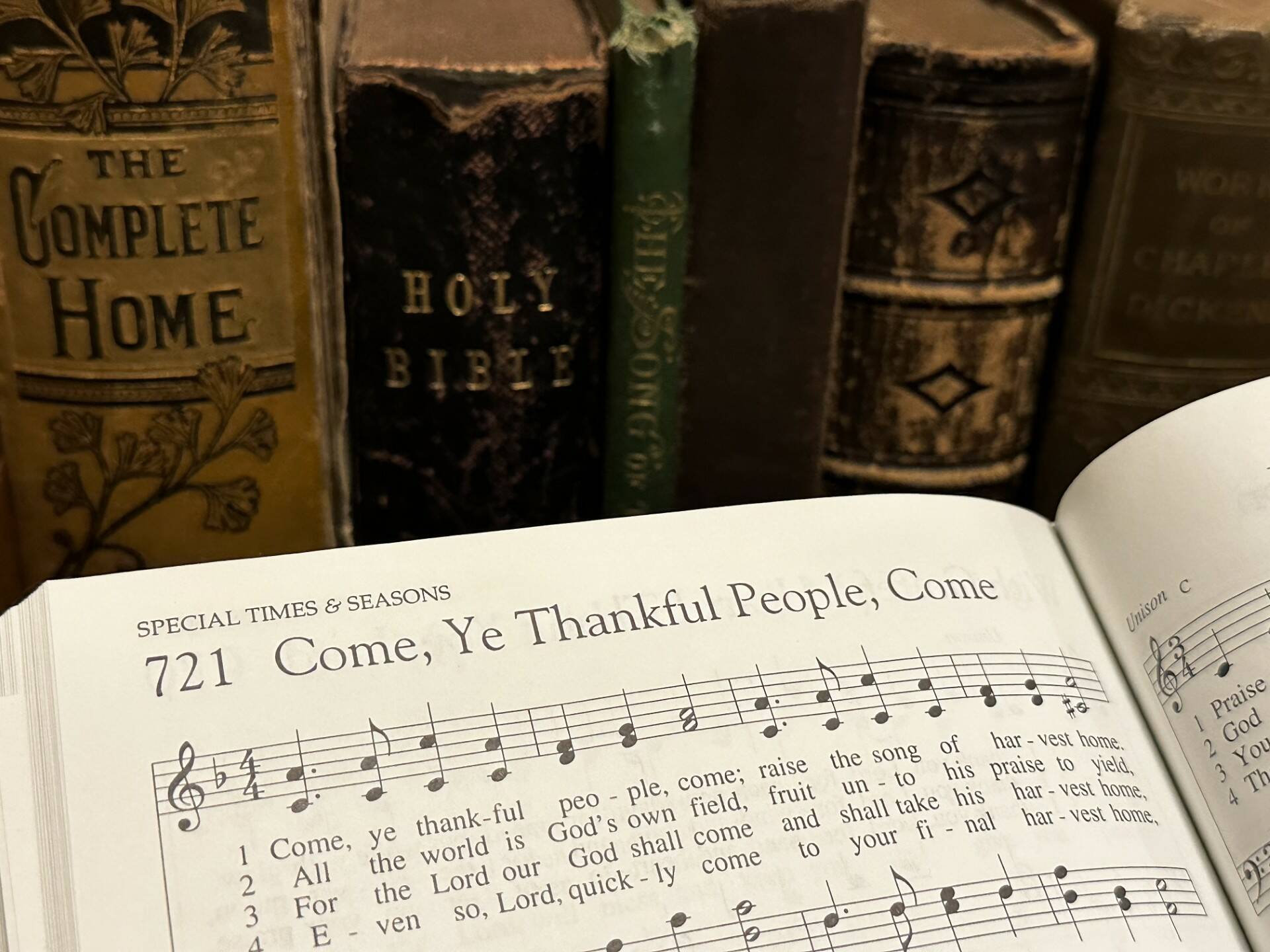“Over the river and through the woods to grandmother’s house we go…”
That timeless children’s song celebrates Lydia Maria Child’s childhood memories of visiting her grandfather’s house. Curiously, the original version refers to grandfather’s house (not grandmother’s).
Although the Christmas season is replete with carols and holiday songs, “Over the River” was the only Thanksgiving song I remember singing in school. Fortunately, there were songs that we sang in church that compensated for what was lacking in the classroom.
I love Thanksgiving hymns like “Come We Thankful People Come,” “We Gather Together to Ask the Lord’s Blessing” and “For the Beauty of the Earth.” There is just something about the lyrics to songs like “Now Thank We All Our God’ and “All Creatures of Our God and King” that tune our hearts to sing God’s praise.
For me Thanksgiving is defined by feasting on turkey and all the trimmings including Gulliver’s creamed corn (a traditional family favorite) and my wife’s homemade pumpkin pie. It also includes the sharing of personal expressions of gratitude around the table before enjoying football.
All the same no Thanksgiving would be complete without borrowing language from folks like Martin Rinkart, Folliott Pierpoint, Fanny Crosby, Johnson Oatman and St. Francis of Assisi in order to voice my gratitude to God. The hymns of thanks we sing in church on the Sunday not only call us to worship, they remind us what Thanksgiving is all about.
Forty-five years ago, when I became a pastor in a denomination with Scandinavian roots, I discovered a Thanksgiving hymn I’d not sung in my youth. The melody was quite enchanting, but the words were what captured my heart. They were refreshingly candid. They spoke of pain and problems in the midst of a life of filled with blessings. Rather than ignoring hardship and heartache, the poet acknowledge suffering as part of the human experience.
Two of the stanzas read as follows…
Thanks for prayers that Thou hast answered. Thanks for what Thou dost deny!
Thanks for storms that I have weathered. Thanks for all Thou dost supply!
Thanks for pain, and thanks for pleasure. Thanks for comfort in despair!
Thanks for grace that none can measure. Thanks for love beyond compare!
Thanks for roses by the wayside. Thanks for thorns their stems contain!
Thanks for home and thanks for fireside. Thanks for hope, that sweet refrain!
Thanks for joy and thanks for sorrow. Thanks for heav’nly peace with Thee!
Thanks for hope in the tomorrow. Thanks through all eternity!
Upon doing a little research I learned that “Tack O Gud” (Thanks to God for My Redeemer) was originally published in Swedish in 1891. It was written by August Storm, a member of the Stockholm Salvation Army.
In addition, I discovered there was a logical reason why the poet referenced life’s setbacks and disappointments in his hymn of thanksgiving. August Storm’s life, like his name suggests, was beset by the unexpected and undesired just like a late summer deluge. Tragically he suffered a serious back injury that left him crippled for much of his adulthood. Having experienced suffering and pain as a person of faith, he incorporated these realities in his hymn text.
The hymn was introduced to the American church through Swedish immigrants settled in the States near the turn of the twentieth century. As they experienced the hardships of adjusting to a new country, they clung to songs of their faith and heritage. Especially words that recognized problems as part of the faith journey.
As I come to this Thanksgiving week, I find myself counting my blessings. I am grateful for hymns that help me vocalize my gratitude to God for His goodness. But I am also grateful for challenges life deals me that help me see the faithfulness of God more clearly. And with that in mind, I’m grateful for the words written a long time ago by a man I never met.
Guest columnist Greg Asimakoupoulos is a former chaplain at Covenant Living at the Shores in Mercer Island.



